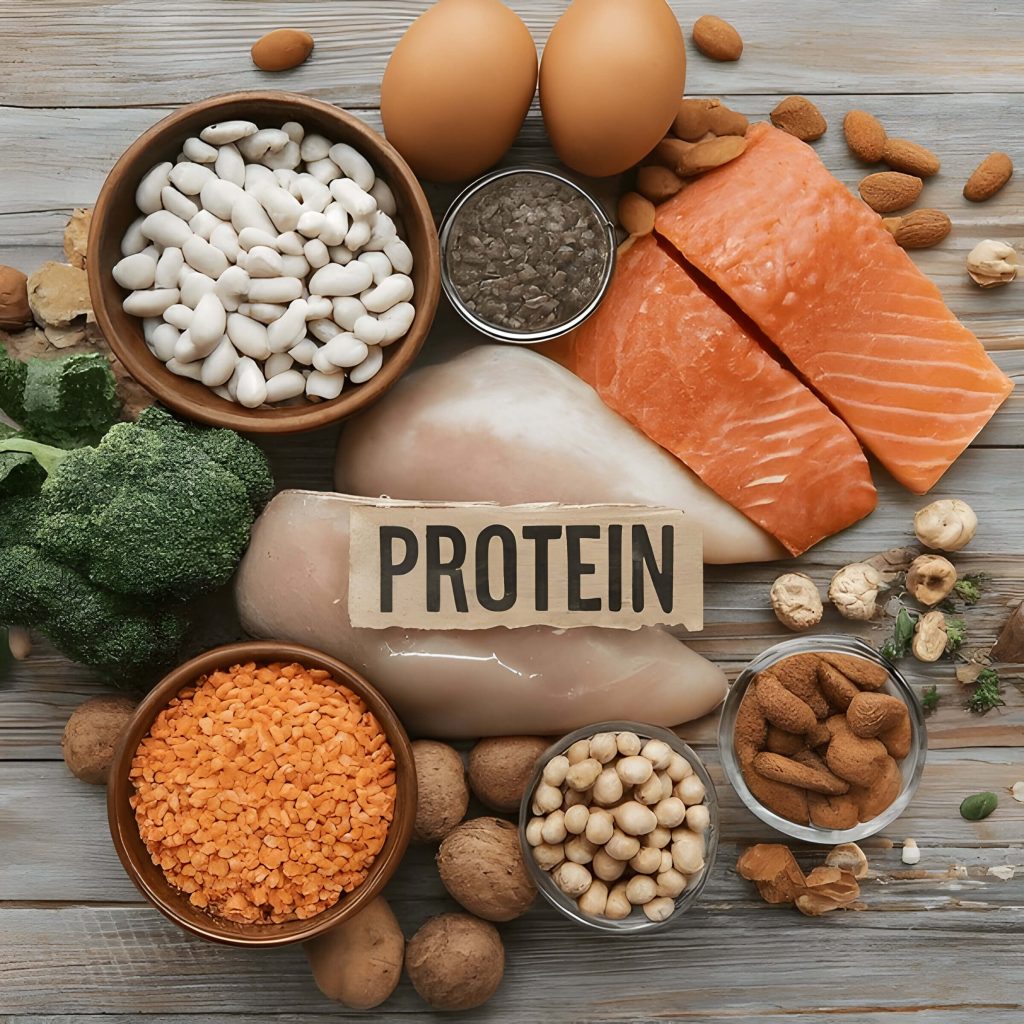Protein, essential for human health, is now at the center of a controversial debate about protein-less diets. This approach challenges traditional nutritional wisdom, raising questions about protein’s role in our bodies. Proponents argue for potential benefits, while critics warn of significant risks. We’ll examine the science behind protein, the pros and cons of protein-less diets, and alternatives for those considering reducing protein intake.
Understanding the Concept of a Protein-Less Diet

The concept of a protein-less diet, also known as a zero protein diet or no-protein eating plan, is a controversial and extreme approach to nutrition that involves the complete elimination of protein from one’s daily food intake. This unconventional dietary strategy raises numerous questions about its feasibility, potential benefits, and associated risks.
While protein is generally considered an essential macronutrient for human health, some proponents argue that a protein-free diet may offer certain therapeutic benefits in specific medical situations. However, it’s crucial to understand that such an extreme protein elimination approach is not suitable for long-term use and should only be considered under strict medical supervision.
The implementation of a protein-less diet presents significant challenges, as protein is found in a wide variety of foods, including meat, fish, eggs, dairy, legumes, and many plant-based sources. Adhering to this diet requires careful planning and a thorough understanding of food composition to ensure complete protein avoidance.
It’s important to note that prolonged protein deprivation can lead to severe health consequences, including muscle wasting, weakened immune function, and impaired organ function. Therefore, anyone considering a protein-free diet should consult with healthcare professionals to assess potential risks and benefits, as well as to develop a safe and appropriate nutrition plan tailored to their individual needs.
The Science Behind Protein and Its Role in the Body
Protein is a fundamental building block of life, playing a crucial role in nearly every biological process within our bodies. At its core, protein is composed of amino acids, often referred to as the “building blocks” of protein. These amino acids link together in various combinations to form the diverse array of proteins our bodies need to function optimally.
One of the primary functions of protein is its involvement in protein synthesis, a complex process where cells create new proteins essential for growth, repair, and maintenance of body tissues. This process is particularly vital for muscle development, immune system function, and the production of enzymes and hormones.
Proteins are considered essential nutrients because our bodies cannot produce all the necessary amino acids on their own. We must obtain these “essential” amino acids through our diet, highlighting the importance of consuming a variety of protein-rich foods. Plant and animal sources alike can provide these crucial nutrients, each offering a unique amino acid profile.
Beyond their structural role, proteins serve as enzymes, catalyzing countless biochemical reactions throughout the body. They also act as transporters, carrying vital substances like oxygen in our blood. Moreover, proteins function as antibodies, playing a key role in our immune defense against pathogens.
Understanding the science behind protein and its multifaceted role in our bodies underscores the importance of maintaining adequate protein intake for overall health and well-being. As research continues to unveil the intricate workings of proteins, we gain a deeper appreciation for these remarkable molecules that are essential to life itself.
Potential Benefits of Reducing Protein Intake
Reducing protein intake can offer several potential benefits that extend beyond mere dietary changes. For kidney health, a lower protein diet may alleviate stress on these vital organs, particularly beneficial for those with existing kidney issues or at risk of developing them. This approach allows the kidneys to function more efficiently without the burden of processing excess protein.
Weight loss is another area where reduced protein consumption might prove advantageous. By decreasing overall calorie intake and potentially shifting the body’s metabolic focus, individuals may find it easier to achieve and maintain a healthy weight. However, it’s crucial to balance this reduction with other nutritional needs to ensure overall health is not compromised.
Intriguingly, some research suggests a link between lower protein intake and increased longevity (eBioMedicine). While the mechanisms are not fully understood, it’s thought that this dietary approach might influence cellular processes related to aging. This connection opens up exciting possibilities for future studies in the field of nutrition and lifespan.
Metabolic benefits are also associated with moderate protein restriction. It may improve insulin sensitivity and glucose regulation, potentially reducing the risk of type 2 diabetes and other metabolic disorders. These effects highlight the far-reaching impact that adjusting protein intake can have on overall health and well-being.
Risks and Challenges of a Protein-Less Diet
Embarking on a protein-less diet can pose significant risks to one’s health and well-being. One of the primary concerns is muscle loss, as proteins are essential for maintaining and building muscle tissue. Without adequate protein intake, the body may begin to break down existing muscle for energy, leading to weakness and reduced physical performance.
Nutrient deficiencies are another critical issue associated with protein-less diets. Proteins are not only building blocks for muscles but also play crucial roles in various bodily functions. A lack of protein can result in deficiencies of essential amino acids, vitamins, and minerals typically found in protein-rich foods.
The immune system can also be compromised when protein intake is insufficient. Antibodies, which are vital for fighting off infections and diseases, are protein-based. A weakened immune system may leave individuals more susceptible to illnesses and slower to recover from them.
Hormonal imbalances are yet another potential consequence of a protein-less diet. Proteins are necessary for the production and regulation of various hormones in the body. Without adequate protein, individuals may experience disruptions in mood, metabolism, and overall endocrine function.
While it’s essential to consider dietary choices carefully, it’s equally important to ensure that any dietary changes are made with a full understanding of potential risks and under the guidance of a healthcare professional.
Who Should Consider a Protein-Less Diet?
While protein is generally considered an essential macronutrient, there are certain situations where individuals might consider a protein-less or extremely low-protein diet. It’s important to note that such a diet should only be undertaken under strict medical supervision. Some medical conditions, such as certain metabolic disorders or advanced kidney disease, may necessitate a drastic reduction in protein intake to manage symptoms and prevent complications.
Dietary restrictions due to allergies or intolerances to common protein sources might also lead some to explore protein-less options, although it’s crucial to find alternative nutrient sources. Ethical reasons, such as specific interpretations of veganism or religious practices, could motivate others to minimize protein consumption. However, it’s vital to ensure proper nutrition through careful meal planning and supplementation.
Experimental diets, while not recommended for long-term use, sometimes involve short periods of protein restriction for potential health benefits or research purposes. Regardless of the motivation, anyone considering a protein-less diet should consult with a healthcare professional to assess potential risks and develop a balanced approach that meets individual nutritional needs.
Alternatives to a Strict Protein-Less Diet
While a strict protein-less diet may seem like an extreme approach to health, there are more balanced alternatives that can offer similar benefits without completely eliminating this essential macronutrient. One option is a low-protein diet, which focuses on reducing protein intake rather than eliminating it entirely. This approach allows for better nutrient balance while still potentially offering some of the benefits associated with protein restriction.
Another alternative is incorporating more plant-based proteins into your diet. Plant proteins often come with additional fiber and micronutrients, potentially offering health benefits beyond those of animal proteins. This shift can help reduce overall protein intake while ensuring you still receive essential amino acids.
Protein cycling is another interesting approach, where periods of normal protein consumption alternate with periods of lower intake. This method may help balance the potential benefits of protein restriction with the body’s need for adequate protein.
Lastly, intermittent protein restriction, similar to intermittent fasting, involves limiting protein intake for certain hours of the day or specific days of the week. This approach allows for flexibility while still potentially harnessing some of the benefits associated with protein restriction.
These alternatives offer more sustainable and balanced approaches to managing protein intake, potentially providing health benefits without the risks associated with complete protein elimination.
Nutritional Considerations and Supplements for a Protein-Less Diet

When adopting a protein-less diet, it’s crucial to pay close attention to nutritional needs that are typically met through protein-rich foods. Essential amino acids, which our bodies cannot produce on their own, become a primary concern. Without traditional protein sources, careful planning is necessary to ensure these building blocks of life are adequately supplied through alternative means.
Vitamin B12, predominantly found in animal products, requires special consideration. Those following a protein-less diet may need to rely on fortified foods or supplements to prevent deficiency, which can lead to anemia and neurological issues if left unchecked.
Iron and zinc, minerals often abundant in protein sources, also demand attention. Plant-based iron sources, while available, are less easily absorbed by the body. Pairing iron-rich foods with vitamin C can enhance absorption. Zinc, crucial for immune function and wound healing, may require supplementation or conscious inclusion of zinc-rich plant foods.
Calcium, typically associated with dairy products, is another nutrient to monitor closely. Leafy greens, fortified plant milks, and certain seeds can contribute to calcium intake, but supplements may be necessary to meet daily requirements.
Sample Meal Plan for a Protein-Less Diet
Creating a balanced meal plan without protein can be challenging, but it’s not impossible. When following a protein-less diet, it’s crucial to focus on nutrient-dense foods that provide essential vitamins and minerals. Start your day with a fruit smoothie bowl topped with chia seeds and coconut flakes for a satisfying breakfast. For lunch, consider a colorful salad with mixed greens, roasted vegetables, and a zesty vinaigrette dressing. Dinner options could include zucchini noodles with a rich tomato sauce or a hearty vegetable stir-fry served over rice.
Snack options are plentiful, ranging from fresh fruit and vegetable sticks to homemade kale chips or air-popped popcorn. When seeking food substitutions, look for alternatives like mushrooms for a meaty texture or jackfruit for a pulled meat-like consistency in sandwiches and tacos.
Is a Protein-Less Diet Right for You?
As we conclude our exploration of protein-less diets, it’s essential to remember that nutrition is deeply personal. What works for one individual may not be suitable for another. While some people report feeling energized and experiencing health benefits from reducing or eliminating protein, it’s crucial to approach such a significant dietary change with caution and awareness.
Before considering a protein-less diet, consult with a healthcare professional or registered dietitian. They can help you assess your individual needs, considering factors such as your age, activity level, overall health, and specific nutritional requirements. Remember that protein plays vital roles in our bodies, from muscle maintenance to immune function, and its complete elimination may lead to deficiencies if not carefully managed.
If you’re intrigued by the concept of a protein-less diet, consider starting with small changes. Perhaps begin by incorporating more plant-based meals or experimenting with protein alternatives. Pay close attention to how your body responds and be prepared to adjust your approach as needed.
Ultimately, the most sustainable and beneficial diet is one that nourishes your body, aligns with your values, and supports your overall well-being. Whether that includes protein or not is a decision that requires careful consideration and professional guidance.
